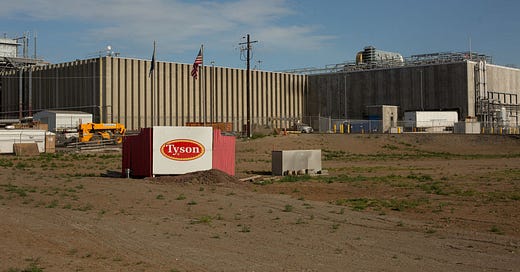“They Died for Your Chicken Nuggets”: The Human Cost of Our Food Supply
The Future of the Tyson Wrongful Death Lawsuit
This is the mid-week edition of Men Yell At Me, a newsletter that sits at the intersection of the personal and the political in red state America. If you read this newsletter every week and value the work that’s put into this (essays, to interviews, and journalism), become a subscriber.



